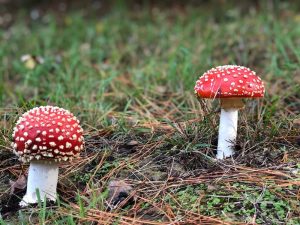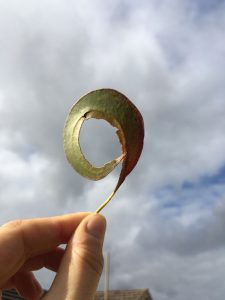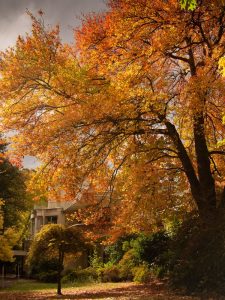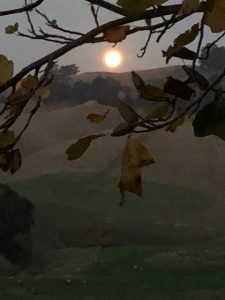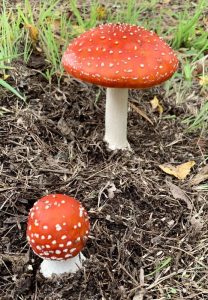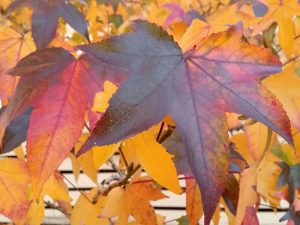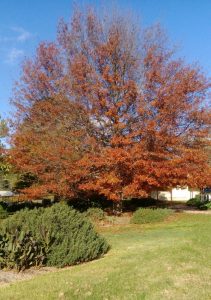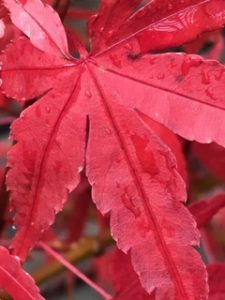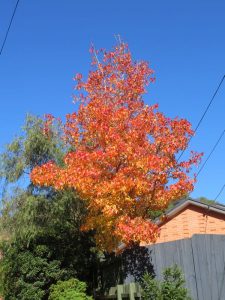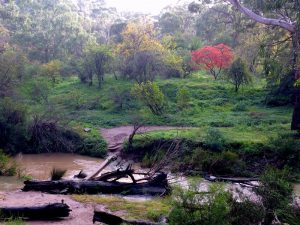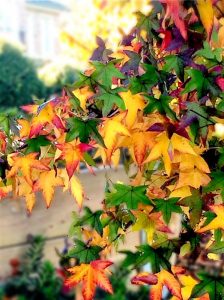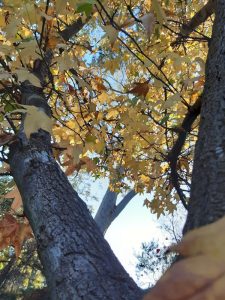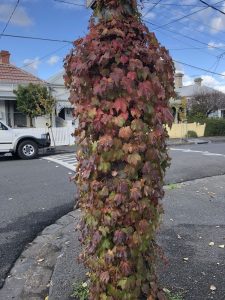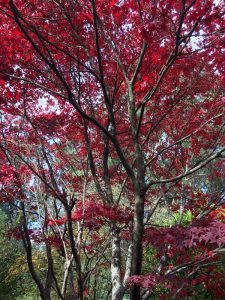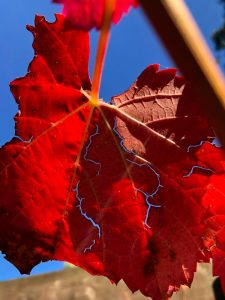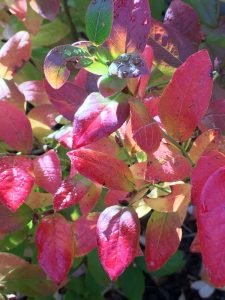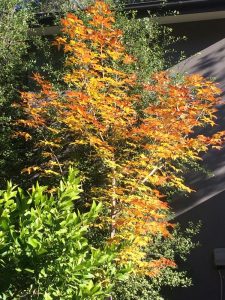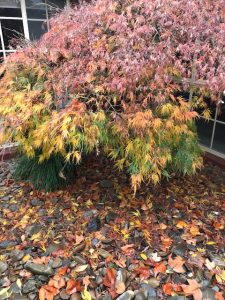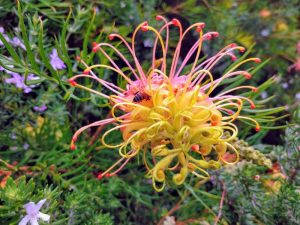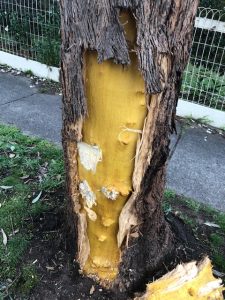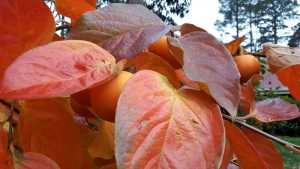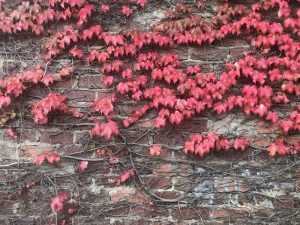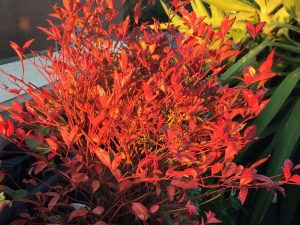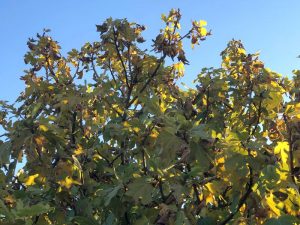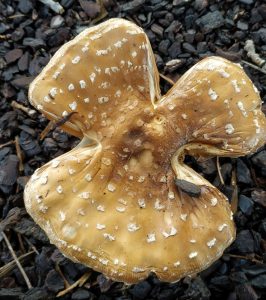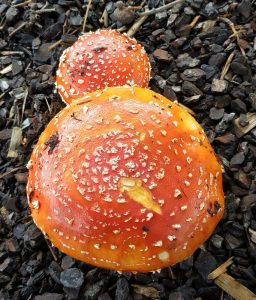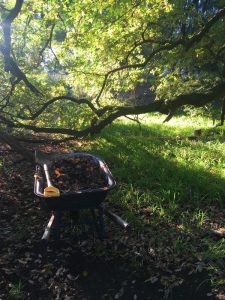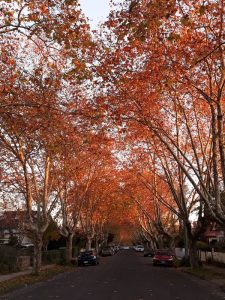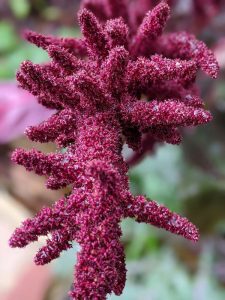Thanks to all the people who have contributed to this week’s newsletter: Agnes Wilson, Aldona Kmiec, Alison Raven, Angie Kristens, Anna Sanders, Aziza de Fazio, Berry McSherry, Choon Yeok, Dianne Parslow, Doris Glier, Farah Dawwas, Fiona Finch, Jon Buttery, Judy Vizzari, Kathleen Bennett, Karen Ye, Kaye Flanagan, Kim Lam, Laura Finch, Louise Nolan, Lyn Richards, Mala Plymin, Maria Ciavarella, Marjory Gardner, Megan Cassidy, Megan Goodman, Niloo Barmanray, Nancy Mills, Raymond Leong, Shiva Vasi, Soo Mei Leong, Sue Thomas, Vanessa Reynolds, Vasundhara Kandpal and Velyne Moretti.
Which farmer’s markets will be happening this weekend?
Abbotsford Convent Farmers’ Market (re-located to Melbourne Innovation Centre, Alphington) and Coburg on Saturday; Alphington and Eltham on Sunday. Not Wonga Park.
Vasundhara’s recipes of the month – rice
The theme for Vasundhara’s three recipes this month is rice. The three recipes are:
 |
 |
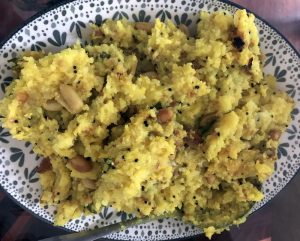 |
| Beetroot rice | Indo-Chinese fried rice | Lemon and turmeric rice |
Like all of Vasundhara’s recipes, the recipes are plant-based.
As I’ve got space, I’m going to put my favourite of the three recipes (Beetroot rice) in full below but you will have to go to the website to read the other two (Indo-Chinese fried rice and Lemon and turmeric rice).
Beetroot rice
Ingredients
1 cup beetroot, grated
2 cups rice, cooked
1 onion, small
2 green chillies (optional)
18-20 curry leaves
1 tablespoon mustard seed
4-5 garlic cloves
1 teaspoon garam masala powder
2-3 teaspoons salt, to taste
2 teaspoons oil
4 cashews (optional)
a handful of peanuts (optional)
1 lemon
Method Heat oil in a pan.
Add the mustard seeds, peanuts, cashews and green chillies. Cook for a minute.
Add the garlic and saute well.
Add the onions and saute well.
Add the grated beetroot. Mix well.
Add the spices and little water. Cover and cook for 5 minutes.
Cook the rice separately. Mix the rice and the beetroot mixture. You can also mix plain white and red rice together for an uneven colouring. Squeeze lemon and serve.
Read more of Vasundhara’s recipes on our website.
Vasundhara Kandpal is a professional cook who operates a meals delivery service called Green Karma in Briar Hill, Eltham, Eltham North and Montmorency. Read her menu and order.
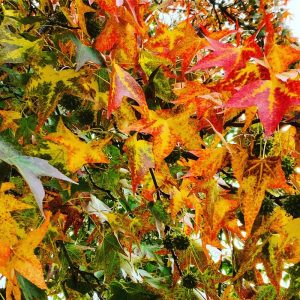 Our photo competition
Our photo competition
Last week’s competition
The theme of last week’s competition was autumn colours and it proved popular, attracting 32 entries, many of high quality. After consulting with higher authority (i.e. my wife), the chosen winner is Marjory Gardner for her photo of liquidamber (aka sweetgum) leaves. Congratulations Marjory, a mushroom kit will be wending its way to you shortly.
An honorary mention goes to Kaye Flanagan for her closeup picture of a bright red leaf. Congratulations Kaye, you will also receive a mushroom kit.
Thanks to everyone who submitted photos. Here are all 32 entries. Click any of them for a larger version.
The week’s competition
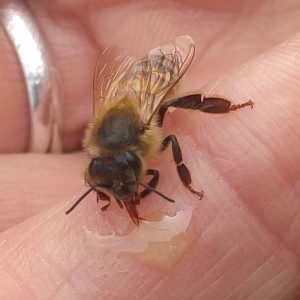 Wednesday, 20th May (i.e. today) is World Bee Day. In recognition of this, the theme of this week’s competition will be bees and other pollinators. As well as photos, tips for making a garden bee friendly and pollinator puns will also be accepted as entries. The judges will be Jane and Peter Dyer from local honey producer Backyard Honey. Jane and Peter will also be donating the prizes which will comprise 1Kg of their raw, unheated honey plus a 1 hour Zoom presentation and discussion by them to the group/school of your choice. Email your entries by end of play Sunday, 24th May.
Wednesday, 20th May (i.e. today) is World Bee Day. In recognition of this, the theme of this week’s competition will be bees and other pollinators. As well as photos, tips for making a garden bee friendly and pollinator puns will also be accepted as entries. The judges will be Jane and Peter Dyer from local honey producer Backyard Honey. Jane and Peter will also be donating the prizes which will comprise 1Kg of their raw, unheated honey plus a 1 hour Zoom presentation and discussion by them to the group/school of your choice. Email your entries by end of play Sunday, 24th May.
To get things going, the photo is of a honey bee that I revived by giving it some diluted honey.
PowerHouse Cheese
As the Local Food Directory page on PowerHouse Cheese was the most clicked link in last week’s newsletter, I thought that I would say a few words about their cheese.
Here are three pertinent words: stinky, yum and unique. The owner, Barbara Power, was previously a microbiologist, and this has clearly given her the confidence to experiment with different moulds and bacteria. Back in the good old days (i.e. before COVID-19), you could wander down to Whitehorse Farmers’ Market, taste all their cheeses, and buy the ripest. Nowadays, you have to buy it untasted at selected Eltham Farmers’ Markets (usually the first Sunday of each month).
Do you know?
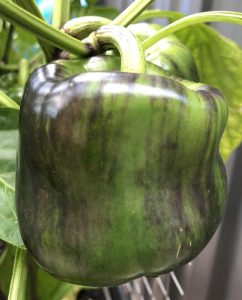 Gerard O’Donnell writes in: “I planted capsicum seedlings a while back. They’ve grown and fruited rather well. I expected that the fruit would change from green to red but, instead, they have stayed green and developed black stripes (see photo). Is this black colouring natural or is something wrong?” Email me with your answer.
Gerard O’Donnell writes in: “I planted capsicum seedlings a while back. They’ve grown and fruited rather well. I expected that the fruit would change from green to red but, instead, they have stayed green and developed black stripes (see photo). Is this black colouring natural or is something wrong?” Email me with your answer.
Shiva Vasi wants to get a trailer load of manure (ideally sheep or cow) for her garden, thereby avoiding plastic bags. Can anyone suggest where she can buy manure in bulk? Email me with yiour answer.
Community gardening news
Like all other community gardens, Macleod Organic Community Garden has been closed during this current crisis. During this time, Sustainable Macleod (who manage the garden) have formed a partnership with BANSIC (Banyule Support and Information Centre), whereby they provide BANSIC with fresh fruit and vegetables for them to give away to people who need them. Thus far, they have provided around 200Kg(!) of fresh food.
Want to read about citrus fruit trees?
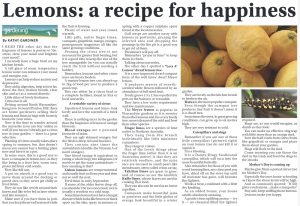 Newsletter reader Kathy Gardiner has written an article about citrus fruit trees (see image right) for the May edition of the Warrandyte Diary.
Newsletter reader Kathy Gardiner has written an article about citrus fruit trees (see image right) for the May edition of the Warrandyte Diary.
Newsletter reader Angelo Eliades has written an article on why your homegrown citrus fruit sometimes has an overly thick peel. Hint: it’s all about phosphorus.
Guy’s veggie growing tip – capsicums, chillies and eggplants
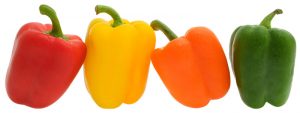 Different veggies have different lifecycles. Many are annuals, which means that their entire lifecycle, from birth to death, takes less than a year. Examples are beans, pumpkins and tomatoes. Others are biennials, which means that their lifecycle, whilst predictable, takes two years. Examples are beetroot, onions and parsley. For some biennials, we effectively grow them as annuals because we eat the things that they produce in the first year (e.g. onions). Yet others are perennials, which means that their lifespan is more than a year but unpredictable.
Different veggies have different lifecycles. Many are annuals, which means that their entire lifecycle, from birth to death, takes less than a year. Examples are beans, pumpkins and tomatoes. Others are biennials, which means that their lifecycle, whilst predictable, takes two years. Examples are beetroot, onions and parsley. For some biennials, we effectively grow them as annuals because we eat the things that they produce in the first year (e.g. onions). Yet others are perennials, which means that their lifespan is more than a year but unpredictable. 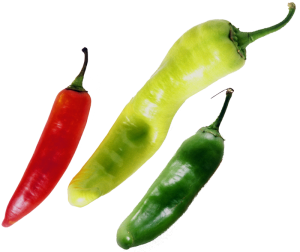 Some perennials typically live for many years (e.g. asparagus and rhubarb), whilst others we effectively grown as annuals (e.g. potatoes).
Some perennials typically live for many years (e.g. asparagus and rhubarb), whilst others we effectively grown as annuals (e.g. potatoes).
That brings me, at last, to capsicums, chillies and eggplants. These are perennial but short-lived, typically living for around three years. But, and here’s the main point of this little article, they are frost tender and are typically killed off by the Melbourne Winter. 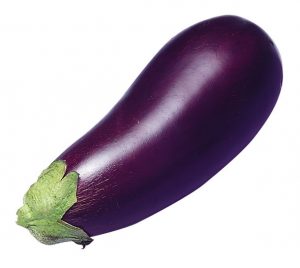 So, if you want to get full value from your capsicum, chilli and eggplant plants, you need to grow them in pots and put those pots in a warm place (e.g. a greenhouse) during Winter. If you have some and they are outside, now is the time to move them to a warmer place (it would have been even better if you had done this before the latest cold spell!).
So, if you want to get full value from your capsicum, chilli and eggplant plants, you need to grow them in pots and put those pots in a warm place (e.g. a greenhouse) during Winter. If you have some and they are outside, now is the time to move them to a warmer place (it would have been even better if you had done this before the latest cold spell!).
Read more of Guy’s veggie growing tips.
Meg’s social isolation week
The leaves are turning on the snow pears along the driveway and they are bright yellow in the sunshine. They match the golden shades of the yellow button chrysanthemums and tall Peruvian lilies in flower underneath. With this leaf change comes the relief of being able to visit friends and family. I am looking forward to being able to take bunches of mixed herbs to share along with the limes (Tahitian) and lemons (Eureka) that are ripening now.
This week, I planted swedes (‘invitation‘), turnips (‘purple top‘) and carrots (‘nante‘) in the veggie patch. The turnips at least grow reasonably fast and I am looking forward to warm barley soups.
This week’s recipe is sweet potato scones. I harvested the sweet potatoes that have been in the ground since January (late to go in). They were grown from a store-bought one, allowed to develop roots in a glass of water then cut into smaller pieces and planted. From the one sweet potato, I obtained six good-sized tubers and several smaller tubers. The vine was also very pretty hanging over the sides of the patch. I’m not sure that the harvest was worth the work – but I’ll think about it as I hunt for the jam to go with the scones.
Sweet potato scones
1 cup cooked sweet potato puree (warm)
1½ cups self-raising flour
1 teaspoon nutmeg
100g butter at room temperature
75g sugar
¼ cup milk (for brushing)
Pre-heat your oven to 220degC.
Cream the butter and sugar until just turning then add the sweet potato puree. Add the flour and nutmeg and fold through (but do not over work).
Tip the dough onto a floured board, gently shape and pat to about 4 cm thick.
Cut out scones and place on tray lined with baking paper. Brush top with milk. Bake the scones for about 15-20 mins.
Tip: place a small dish with water in the bottom of the oven to help with forming a light ‘crust’.
Read Meg’s other recipes on our website.
Joke of the week
What’s the difference between an Mel Gibson movie and a pizza? Pizzas are good.
Regular, current, online events
If you know of any others, email me.
Newly announced events
Open Table are now offering their weekly no waste cook club workshops free and online on Saturdays. As well as cooking (which is actually optional), you will learn about food waste and composting. Register on EventBrite.
Nillumbik Council are organising a free, online workshop entitled mushroom discovery on Monday, 25th May, 10am-midday and again on Saturday, 6th June, 2-4pm. Register on EventBrite.
Alphington-based Pollinator Alliance is bringing you Bee School Online, which will be centred on a series of videos together with activities that you can do at home.
From 1st June, Whitehorse Council will be publishing on their Youtube channel a video each Monday at 9am on various aspects of sustainability, including bee hotels (on 15th June) and beeswax wraps (on 22nd June).
I was sent the details of two other new events but both of them are happening on the very day that this newsletter is going out (20th May), which makes it pointless for me to advertise them. Give your event a chance by giving people adequate notice about its existence! Email me the details of, or a link to, your upcoming events.
Previously announced events
Bulleen Art and Garden Nursery (BAAG) are now holding weekly classes online on a variety of subjects. The next classes are on compost & worms (Saturday, 23rd May, starting 3.30pm), pest control with companion planting (Saturday, 30th May, starting 10.30am) and growing fruit & veggies in small spaces (Saturday, 30th May, starting 1.30pm). $20 per class. Book online at WeTeachMe.
Darebin Council and 3000acres are holding free, online gardening videos every Tuesday at 3pm on the 3000acres Facebook page. The next video topic is: 26th May – cool season garden projects.
Sustainable Macleod are producing a series of videos entitled growing tips starring our very own Robin Gale-Baker.
Nillumbik Council are organising a free, online presentation entitled nestbox neighbours on Tuesday, 26th May, 7-8pm. Register on EventBrite.
CERES have moved some of their classes online.
Newsletter reader Chloe Thomson is doing free, weekly podcasts on gardening for Bunnings.
Pip Magazine (some of whose journalists live in North East Melbourne) are producing a series of videos entitled simple skills for self sufficiency.
Formidable Vegetable are producing a series of videos entitled ‘grow-vid-19’ permaculture pandemic.
Good Life Permaculture are producing a series of videos entitled crisis gardening.
All The Dirt is a fortnightly podcast about gardening.
Birdlife Australia are giving weekly talks on their Facebook page. The talks can be watched live starting at midday on Thursdays, or as videos afterwards.

